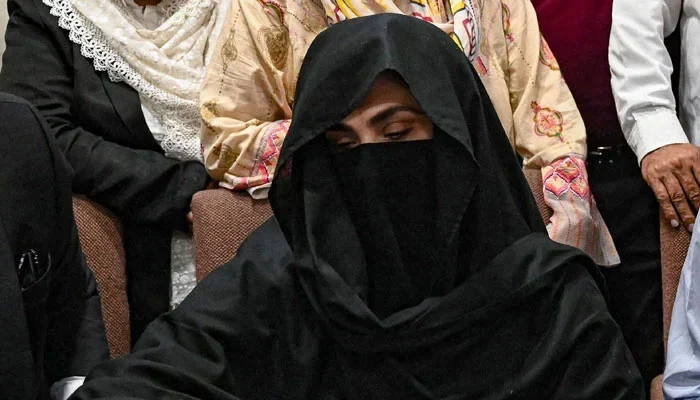- Aitzaz’s petition seeks establishment of an “effective” commission.
- Court verdicts not enough, state needs to “change its mindset”: CJP
- “Country has been fractured,” CJP on enforced disappearances.
ISLAMABAD: Chief Justice of Pakistan (CJP) Qazi Faez Isa on Wednesday asked the federal government to give in writing that there would be no more enforced disappearances in the country.
The development came as a three-member bench led by Justice Isa and comprising Justice Muhammad Ali Mazhar and Justice Musarrat Hilali, heard the petition of Barrister Aitzaz Ahsan and other petitioners on the unlawful practice of enforced disappearances, praying for declaring it as violative of various articles of the Constitution.
“We do not want a statement from any section officer. The Government of Pakistan should give us in writing that no one will be illegally disappeared anymore,” the CJP said during a hearing of the case.
Aitzaz had prayed the court to declare that enforced disappearances are violative of Articles 4, 9, 10, 14, 19, and 25 of the Constitution besides declaring that the Commission of Inquiry on Enforced Disappearances does not adequately comply with legal and international standards.
Similarly, he asked the apex court to set up an effective and purposeful commission.
He prayed the apex court that the commission should be headed by a judge of the Supreme Court while members of the commission should be the Supreme Court Bar Association president, Pakistan Bar Council vice chairman, Lahore, Sindh, Peshawar, Quetta Bar Association heads, Human Rights Commission of Pakistan chairman, National Commission on Status of Women chairperson, Inter-Services Intelligence (ISI) Director General, Intelligence Bureau (IB) additional director general and Pakistan Federal Union of Journalists president.
In today’s hearing, the CJP lamented that the country has been “fractured” by its people, saying that the state needs to change its mindset as court verdicts alone are not enough to end the practice of enforced disappearance.
At the outset of the hearing, Ahsan’s counsel Shoaib Shaheen cited the Supreme Court’s verdict on the 2017 Faziabad sit-in.
The CJP inquired how the Faizabad sit-in verdict is related to enforced disappearances. Advocate Shaheen maintained that the court has mentioned the role of intelligence agencies in the verdict.
At this, the CJP asked Shaheen to explain the part of the Faizabad sit-in decision that applied to the participants of the Baloch protesters protesting against enforced disappearances.
The counsel replied that the Faizabad verdict stated that peaceful protest is the right of every citizen and called for action against those who resorted to violence.
“I am surprised that you are referring to the Faizabad dharna verdict,” the CJP remarked.
Advocate Shaheen said he had been always referring to the Faizabad verdict. “If the Faizabad sit-in decision had been followed so such circumstances would not have happened today,” he added.
The top court adjourned the hearing of the case till January 9.


 Latest News3 days ago
Latest News3 days ago
 Business3 days ago
Business3 days ago
 Latest News2 days ago
Latest News2 days ago
 Latest News2 days ago
Latest News2 days ago
 Latest News2 days ago
Latest News2 days ago
 Latest News2 days ago
Latest News2 days ago
 Latest News3 days ago
Latest News3 days ago
 Latest News3 days ago
Latest News3 days ago
























